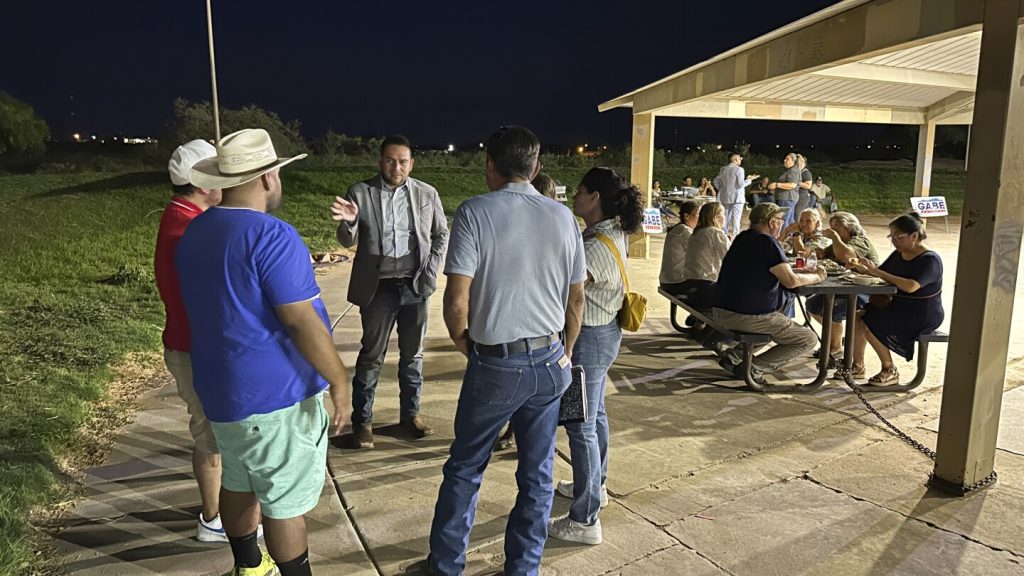The politics of immigration on the southern U.S. border are playing a significant role in the upcoming congressional elections in districts along the border. From Texas to New Mexico to Arizona, the issue of immigration is front and center, with both Democrats and Republicans vying for control of key districts. The urgency of the situation is evident in areas like Sunland Park, New Mexico, where migrant deaths from heat exposure have surged, and smuggling cartels continue to wreak havoc. Concerns about border security, enforcement, and the humanitarian crisis are shaping the narratives of candidates in these districts.
In Sunland Park, the border politics are literally matters of life and death. With reports of migrant bodies being found in New Mexico’s border region, there is a growing concern about the surge in deaths due to harsh conditions and the influence of smuggling cartels. Democratic Rep. Gabe Vasquez, who represents the region, is promoting border enforcement measures and advocating for legislation to address the challenges faced by migrants and border communities. His Republican counterpart, Juan Ciscomani in Arizona, also prioritizes border enforcement but with a more nuanced approach that includes his personal immigrant story and commitment to fixing the border situation.
The border districts are seeing a mix of ideologies and approaches from the candidates, with both sides trying to find common ground while appealing to their base. Incumbents like Vasquez and Ciscomani have co-sponsored bills on various issues related to immigration and border security, despite their ideological differences. However, challengers like Michelle Vallejo in Texas are taking a hard line on border enforcement to unseat Republican incumbents. The delicate balance of addressing immigration issues while considering the needs and concerns of border communities and immigrants is a key challenge for candidates in these districts.
The political landscape along the southern U.S. border is complex, with voters having tangible concerns about security, immigration, and economics. The border region’s population comprises a mix of Hispanics with deep ties to Mexican and Spanish heritage, adding another layer of complexity to the political dynamics. Democrats and Republicans are focusing on different aspects of border politics, with Democrats advocating for bipartisan solutions and Republicans emphasizing the need for strict enforcement of immigration laws. The upcoming congressional elections in these border districts will likely be closely watched as the debate over immigration continues to shape the political discourse.
As the elections draw near, the candidates are intensifying their efforts to reach out to border communities and address their concerns. Issues like migrant deaths, smuggling, and border security are at the forefront of the political debate, with candidates proposing various solutions to tackle these challenges. The diversity of views and approaches among candidates reflects the complexity of the immigration issue and the need for comprehensive, bipartisan solutions. Ultimately, the outcome of these elections could have a significant impact on the direction of immigration policy and enforcement along the southern U.S. border. Voters in these districts will have to weigh their priorities and choose candidates who they believe can effectively address the complex issues facing their communities and the nation as a whole.















